| | Diplomatic meetings show US and Chinese efforts to gather allies around them, concern over possible ͏ ͏ ͏ ͏ ͏ ͏ |
The World Today | 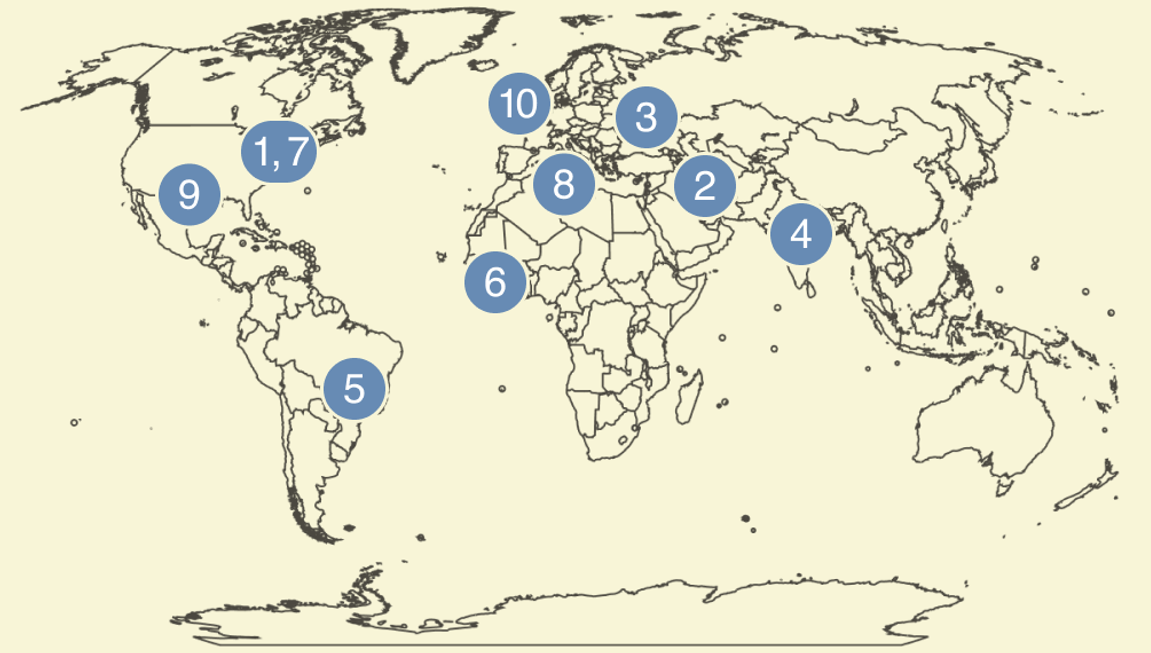 - A polarizing world
- Iran retaliation fears
- Drones hit nuclear plant
- India’s unequal election
- Musk in Brazil row
- Sierra Leone kush crisis
- Decline of the IPO
- ‘Hardest Geezer’ finishes
- Beyoncé, queen of country
- Fragmenting fame
 The London Review of Substacks, and the revival of afternoon tea. |
|
US, China move to gather allies |
 Kiyoshi Ota via Getty Images Kiyoshi Ota via Getty ImagesA series of meetings and summits this week will highlight the gulf separating the U.S. and its allies from China and Russia. U.S. President Joe Biden will host the leaders of Japan and the Philippines, and Britain’s Foreign Secretary David Cameron is also due in Washington, with talks expected to focus on fears of Chinese aggression in the South China Sea — Biden is to warn Beijing against making moves in the region — and beyond. The U.S. and U.K. are also likely to discuss increasing military aid to Ukraine, which has warned of losing ground to Russia if supplies, which have been held up by political disputes in Washington, do not arrive soon. “Ukraine must win this war,” Cameron wrote with his French counterpart in The Telegraph. “If Ukraine loses, we all lose.” The flurry of activity comes with Russia’s foreign minister having landed in Beijing for what Moscow described as talks on a series of “hot topics.” On her recent trip to China, U.S. Treasury Secretary Janet Yellen warned Beijing of “significant consequences” if its companies were found to be helping Russia in its war in Ukraine, though it’s unclear if the comments will have any impact: U.S. officials are reportedly warning allies that Beijing is already supplying Moscow with intelligence in support of the war. |
|
Iran revenge concern over Syria strike |
 Majid Asgaripour/WANA (West Asia News Agency) via Reuters Majid Asgaripour/WANA (West Asia News Agency) via ReutersThe U.S. is on high alert for a potential ‘significant’ Iranian attack on Israeli or American assets in the Middle East. Last week, an Israeli attack killed top Iranian commanders in Damascus, and U.S. government officials told CNN that a response is “inevitable.” The nature of any reprisal is unknown, but a worst-case scenario would be a direct strike on Israel, which could lead to the Israel-Hamas war broadening into a regional conflict, something Washington is striving to avoid. Iranian proxies regularly attacked U.S. forces with drone, rocket, and missile launches earlier in the year, but for the last two months or so they have been relatively quiet. |
|
Drones hit Ukraine nuclear plant |
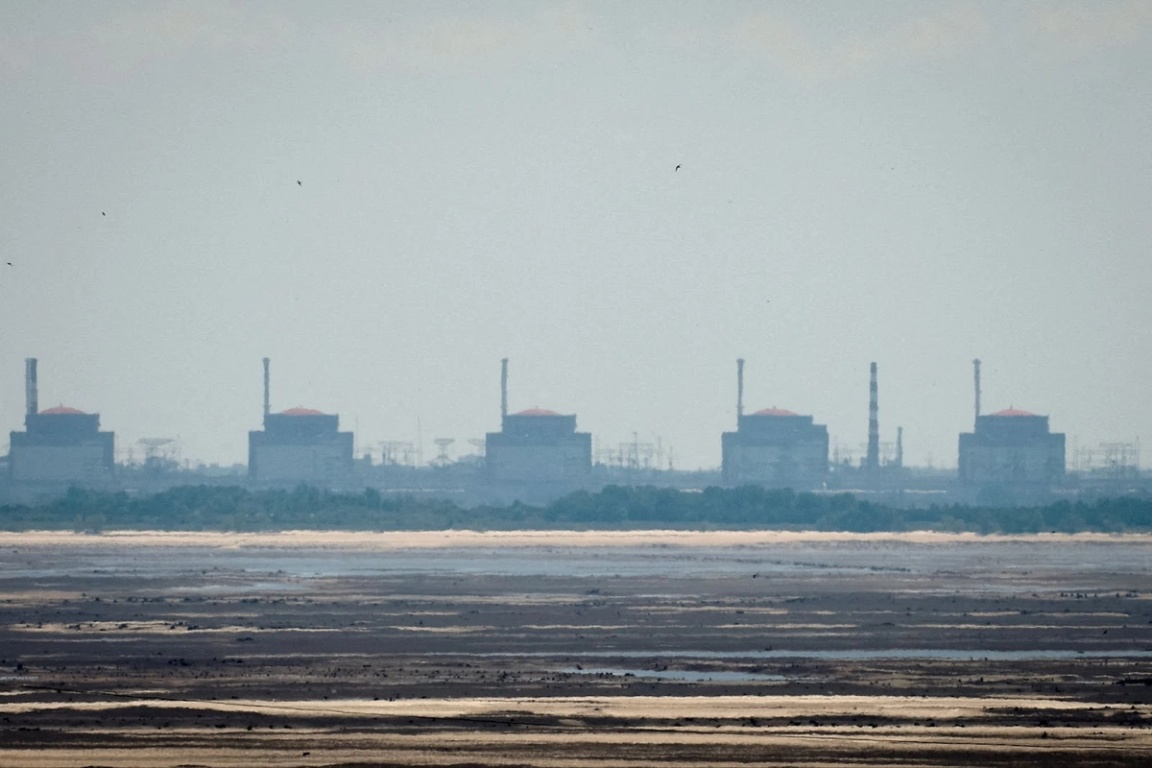 The Zaporizhzhia nuclear power plant. Alina Smutko/Reuters The Zaporizhzhia nuclear power plant. Alina Smutko/ReutersDrones hit the Zaporizhzhia nuclear power plant in Russian-occupied Ukraine, raising the risk of what the International Atomic Energy Agency called a “major nuclear incident.” At least three drones hit the plant: No nuclear material was exposed but the IAEA said it could undermine the “integrity of the reactor’s containment system.” Russia blamed Ukraine, which denied involvement. Cheap drone munitions have become the defining tool of the war: Ukrainian strikes are steadily degrading Russian oil infrastructure faster than it can be repaired, a Carnegie Russia scholar wrote, and Moscow is repurposing old Soviet-era “glide bombs” with simple sat-navs to strike targets up to 40 miles away, the Financial Times reported. |
|
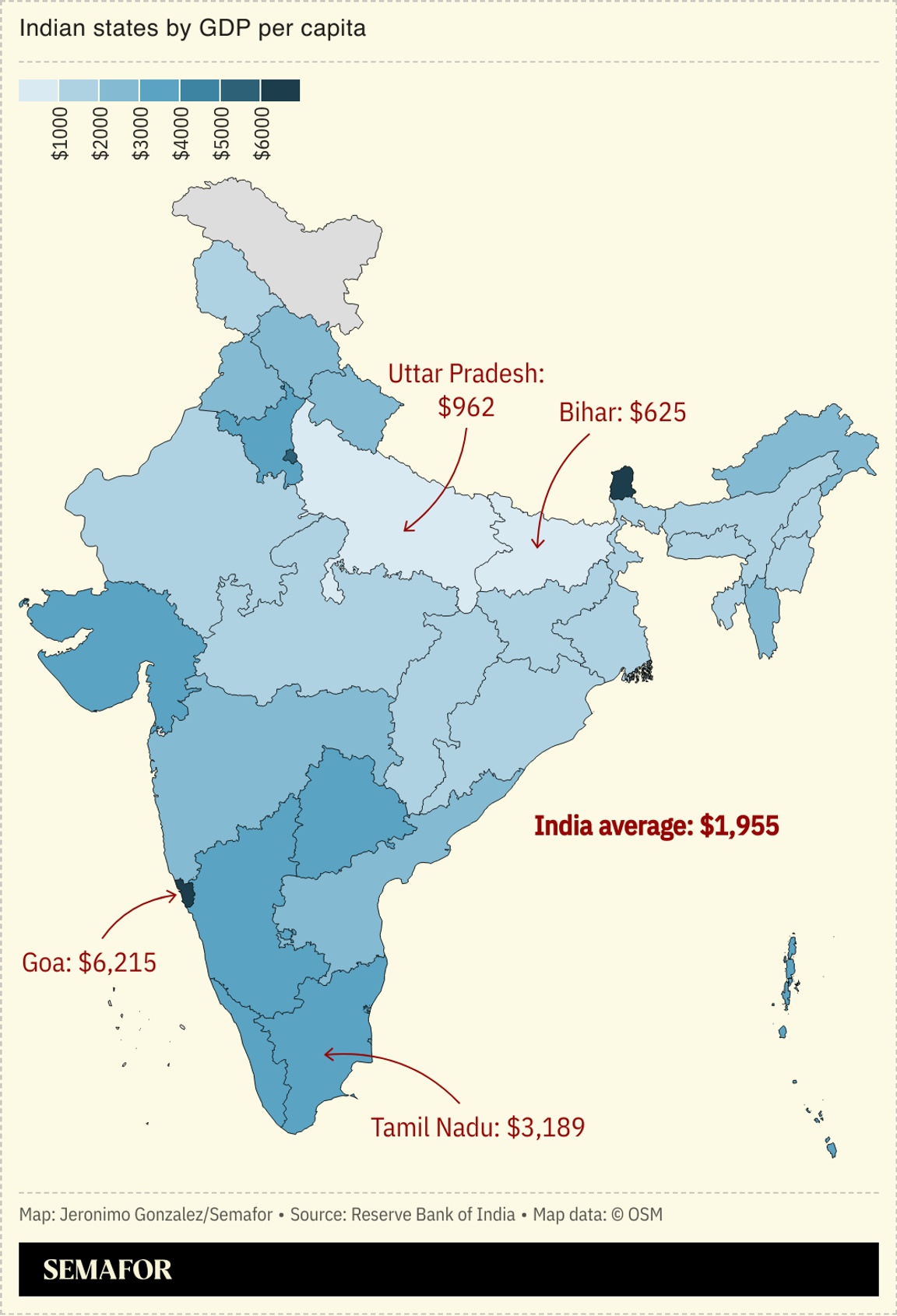 India’s growing inequality and democratic backsliding will be on display in the country’s upcoming election, analysts said. Coverage of the vote typically focuses on India’s populous north, where Prime Minister Narendra Modi’s Hindu nationalists are dominant, but largely ignores the far more prosperous and progressive south, where the prime minister is less in control and officials are more “likely to let individuals be, eat, pray and love how they want,” a Bloomberg columnist argued. Nationwide, however, the trend is clear: Modi is expected to triumph in what a Financial Times comment piece said was “a kind of tacit deal, in which swing voters accept a democratic recession … so long as he delivers economic progress.” |
|
Brazil faces off with Musk |
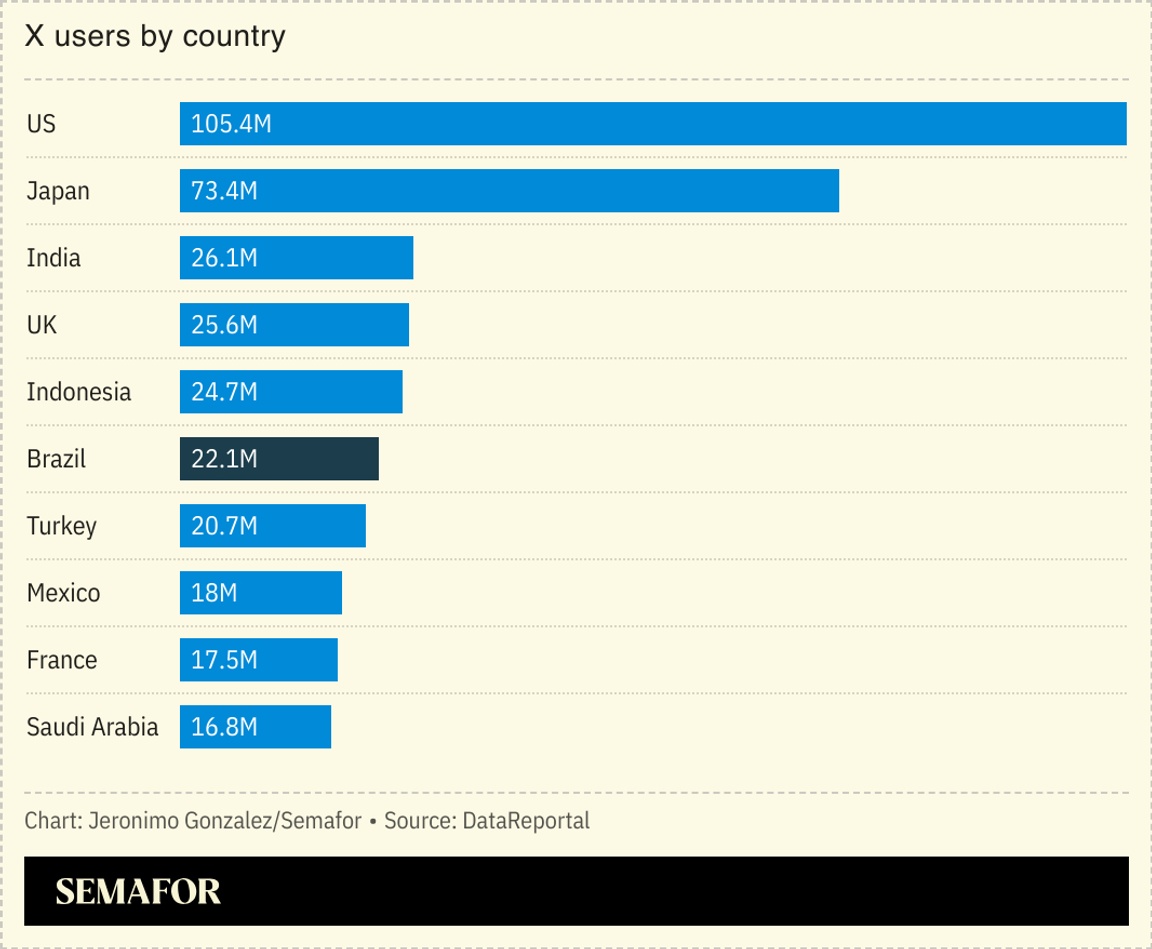 Brazil’s Supreme Court opened an inquiry into Elon Musk after the billionaire owner of X said he would reactivate accounts on the social media platform that a judge had ordered blocked. In response, Musk called on one of the court’s judges to “resign or be impeached.” The blocked accounts are believed to be linked to a group of supporters of former President Jair Bolsonaro who led attacks against the country’s Congress and presidential palace last year after his electoral defeat. According to experts, X could be banned in Brazil if it disobeys the ruling. “We will not allow anyone, regardless of the money and power they have, to affront our homeland,” Brasília’s communication minister said. |
|
Sierra Leone drugs emergency |
 Sierra Leone's President Julius Maada Bio. Cooper Inveen/Reuters. Sierra Leone's President Julius Maada Bio. Cooper Inveen/Reuters. Sierra Leone declared a national emergency over drug abuse amid soaring use of kush, a synthetic narcotic. The highly addictive mix of marijuana, fentanyl, and other drugs has caused hundreds of deaths across the country and other West African nations, Reuters reported. The crisis in Sierra Leone underscores the challenge authorities face in cracking down on the use of powerful opioids such as fentanyl, a tiny dose of which could be fatal: According to the U.S. Drug Enforcement Administration, just 2 milligrams of fentanyl — equivalent to a few grains of table salt — is lethal to most people; a backpack’s worth could kill millions. |
|
Supplies of stocks shrinking |
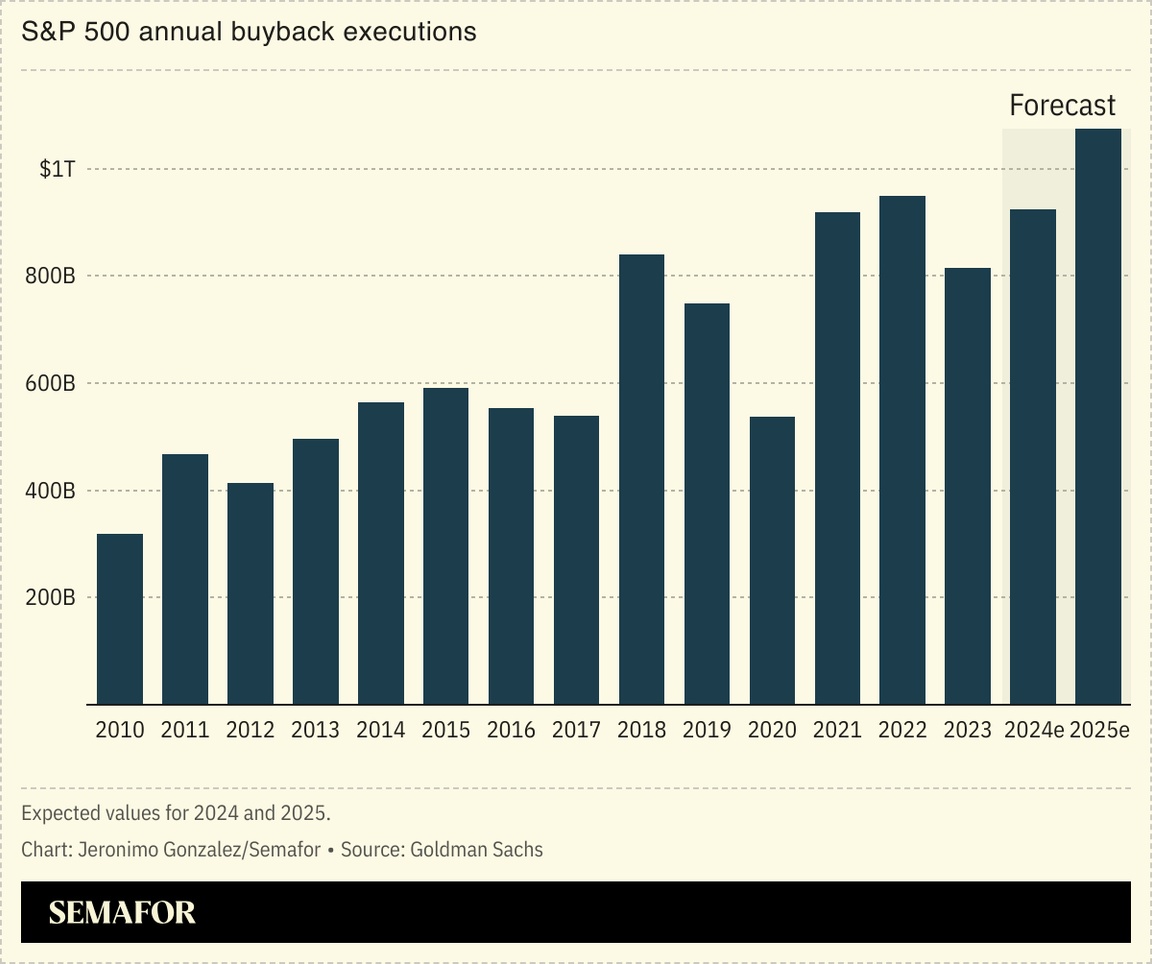 Global supplies of stocks are declining at their fastest pace in at least a quarter-century — and could shrink further still — in large part over political and economic uncertainty. JPMorgan research showed that worldwide, the sum total of publicly traded equities has already fallen by $120 billion this year, three times as much as all of 2023, which is likely to lead to a third consecutive year of net declines for the first time this century. The fall is thanks to a combination of share buybacks and a limited number of IPOs, which JPMorgan attributed to “persistent uncertainty.” Goldman Sachs, meanwhile, expects share buybacks in the U.S. alone to grow 13% this year and 16% next year to top $1 trillion in 2025. |
|
 Xavier Becerra, U.S. Secretary of Health and Human Services; Raj Shah, President, Rockefeller Foundation; Andrew Steer, President & CEO, Bezos Earth Fund; Gargee Ghosh, President, Global Policy & Advocacy, Gates Foundation; Jay Shambaugh, Undersecretary for International Affairs, Treasury Department and Ani Dasgupta, President & CEO at World Resources Institute will join the Rising Global Middle Class Session at the 2024 World Economy Summit to discuss the debt burden developing countries are facing today and how governments and private sector players can foster economic growth to create greater opportunities. April 18 | 9 a.m.-12 p.m. ET | Washington, D.C. |
|
‘Hardest Geezer’ completes Africa run |
 Russ Cook. Zoubeir Souissi/Reuters Russ Cook. Zoubeir Souissi/ReutersA British man ran the entire length of Africa, from the southernmost tip of South Africa to the Mediterranean coast of Tunisia. Russ Cook, “@hardestgeezer,” says he is the first person to complete the feat, which took him 352 days. During that time, he was robbed at gun- and machete-point, suffered several bouts of food poisoning and at one stage was urinating blood, and was denied entry to Algeria until British politicians and a social media outcry persuaded Algiers to issue a visa. He was joined for the final marathon-length segment by dozens of other runners before reaching Ras ben Sakka, where he enjoyed a well-earned strawberry daiquiri and a dip in the Med. |
|
Beyoncé rules country music |
 Mario Anzuoni/Reuters Mario Anzuoni/ReutersBeyoncé became the first Black woman to top Billboard’s country albums chart. Her new album Cowboy Carter also debuted at the top of the main album chart, and claimed the biggest first week for any country album since Taylor Swift’s Speak Now (Taylor’s Version) last July. A month earlier she had also become the first Black woman to hold a number one country single. Reviews have widely praised the album — NME described it as “a heartfelt, expansive take” — and experts said it could help raise the profile of other Black country artists, who say they struggle to break through in the genre. “Black music is country music,” one said. |
|
Fragmenting fame changes Tussauds |
 WikimediaCommons WikimediaCommonsCelebrity is fragmenting, making it harder for the London waxworks museum Madame Tussauds to find faces that everyone recognizes. Tussauds opened in 1835, making wax models of famous people: In the 1960s the Beatles, in the 1980s Charles and Diana. But the fall of universally watched TV programs and growth of algorithmically personalized video means not everyone sees the same content or recognizes the same celebrities: Whereas in the 1990s it was hard to avoid the Spice Girls so their wax doubles were instantly familiar, even successful artists are now only known to a subset of society. “You can be successful without being famous now,” a music journalist told The Economist. |
|
 - A total solar eclipse will be viewable from parts of Canada, Mexico, and the United States.
- Republican presidential candidate Donald Trump is expected to make an announcement on his abortion policy were he to return to the White House.
- Britain’s royals will attend a parade to mark the 120th anniversary of the Entente Cordiale between the U.K. and France.
|
|
 Flightless In London Zoo, there is a Penguin Pool. It was designed in 1934 by the architect Berthold Lubetkin, a Soviet emigré influenced by Le Corbusier, and is beautiful: A “geometrically balanced, elliptical structure,” built around a “pair of gracefully interlocking, miraculously unsupported spiral ramps.” It is renowned as a masterpiece of modernism, and much celebrated by architects. Unfortunately, Ian Leslie notes in The Ruffian, it “hasn’t had any penguins in it for twenty years.” Its concrete floors gave the penguins arthritis; its foot-deep pool didn’t let them dive; its echoey walls messed with the penguins’ ability to identify each others’ unique calls. They didn’t slide down the showpiece spiral ramps, and if they had they’d have slid into a wall. The problem was that Lubetkin had designed it as a metaphor for Antarctica, rather than an attempt to recreate the penguins’ actual habitat, and “as it turns out, it’s not much fun for an animal to live in a human metaphor.” Nowadays, zoos are much more focused on “what makes the animals happy, rather than what humans find amusing.” Half life A funny thing about support for nuclear power, at least in Britain: It’s not that popular, except in places where nuclear power plants used to be. When the political bloggers and think-tankers Jeremy Driver and Ben Hopkinson polled 2,000 people on whether they’d support building new nuclear plants in their area, about 50% said yes, compared to more than 70% for renewables. But in Anglesey, where the Wylfa nuclear plant shut down in 2015, residents “speak with a genuine misty-eyed fondness of the well-paid jobs and opportunities that nuclear power provided.” The plant brought good local jobs and a well-paid workforce that spent money in the area: “Many of the benefits of nuclear generation are felt most strongly by the local communities.” But in Britain, as in the United States, the older generation of plants is shutting down, and fewer people remember those benefits. “It’s very possible that local support for nuclear power in places that previously had nuclear power generation has a half-life,” write Driver and Hopkinson, “and will begin to fade the longer we wait to replace it.” Market towns A lot of people strongly dislike “market rate” housing. That is: Letting developers build homes and sell them at a price that people are willing to pay. With cities across the West facing housing crises, and millions unable to afford to rent or buy, it seems to those people that making more houses to rent or buy at those unaffordable prices won’t help. But it will, says the economics blogger Noah Smith: Building expensive homes in a city will make housing more affordable. It shouldn’t even be a controversial point, he argues: It’s economics 101. If you have a town of 10,000 people, and 10,000 Honda Civics for sale, and then you offer a Lamborghini for $300,000, then when someone buys the Lambo, there are 10,000 Civics for 9,999 people and someone’s going to have to drop the sticker price on the last Civic. The price of the average car has gone up — but the Civics have become more affordable. Similarly, it’s been shown empirically that when fancy new homes become available, people who can afford them move into them, freeing up cheaper accommodation down the ladder. |
|
 Creative Commons/The Landmark Creative Commons/The LandmarkThe British tradition of afternoon tea — ostensibly the preserve of the wealthy — is increasingly popular with younger people thanks not just to social media, but rising food costs too. Upscale department stores such as Fortnum & Mason as well as sandwich shops like Benugo have reported growing interest in afternoon tea (made up of finger pastries, tiny sandwiches, and, of course, tea) driven in part by photogenic appeals on Instagram. Cafes near London tourist attractions, for example, offer themed meals based around Paddington Bear or Peter Rabbit. But according to The Guardian, another factor is cost: Afternoon teas are easier to prepare for restaurants and hotels, and are as a result cheaper than ordering lunch, “a frugality that has always been at the heart of the meal.” |
|
| |